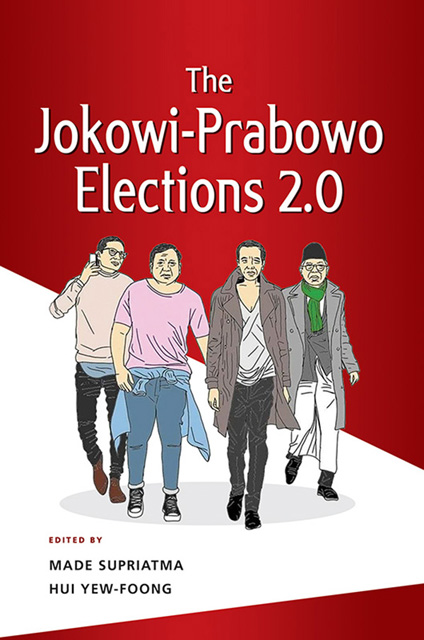7 - Unions and Elections: The Case of the Metal Workers Union in Elections in Bekasi, West Java
Published online by Cambridge University Press: 30 June 2023
Summary
The labour movement—particularly, the metal workers union, Serikat Pekerja Metal Indonesia (SPMI)—is the most active social movement in Indonesia post-Reformasi. SPMI has been involved in electoral politics since 2004. It labels such involvement as Buruh Go Politik (“Workers Go Politics”). This is a programme set up by the national federation that SPMI is a member of Federasi Serikat Pekerja Metal Indonesia (or FSPMI, for short) to support union members to run as legislative or executive candidates at any level of government. Starting from the industrial areas of Batam in Sumatra during the 2004 local legislative elections, the labour movement's involvement in politics represents one form of non-elite participation in Indonesian electoral democracy (Ford 2014). Such participation also marks a new era for the unions after a long period of isolation from electoral politics during the New Order period, when the labour movement was heavily restricted (Hadiz 1997).
The SPMI's political participation is situated in two main contexts in Indonesia: the decline of the manufacturing sector (World Bank 2016, p. 17) and increased political restrictions. Before the economic crisis of 1997, the manufacturing sector had contributed 9 per cent to the Indonesian economy but its contribution steadily declined after the crisis. For example, between 2003 and 2015, the rate of decline was 4.9 per cent (Tadjoedin et al. 2016). As of 2015, the sector absorbed 22 per cent of manpower, compared with the 47.8 per cent absorbed by the services sector. The decline has increased the vulnerability of workers in the sector (Tadjoedin et al. 2016).
The second context within which the SPMI operates today is increased government restrictions on political participation by labour unions since 2015. At the root of the restrictions is a series of labour protests in West Java in 2012 demanding an increase in the minimum wage. The protesters blocked a toll road leading to a manufacturing estate in Bekasi, causing significant economic losses.
The economic malaise and political constraints should have pushed the labour movement into political quiescence; instead, it thrived through political participation (Caraway and Ford 2014). In particular, in the 2014 legislative elections in both Bekasi District (kabupaten) and Bekasi City, SPMI members ran for election and two of them secured seats at the district level.
- Type
- Chapter
- Information
- The Jokowi-Prabowo Elections 2.0 , pp. 127 - 144Publisher: ISEAS–Yusof Ishak InstitutePrint publication year: 2022



